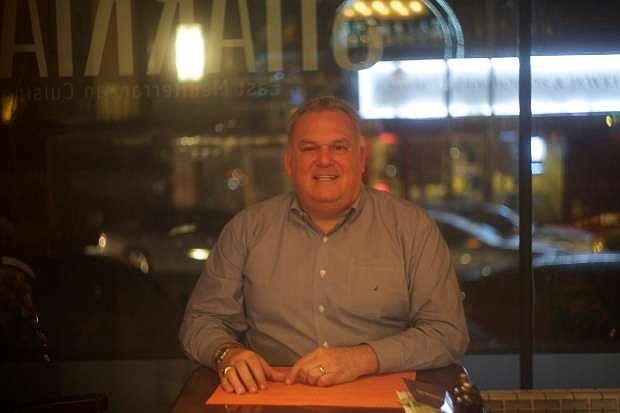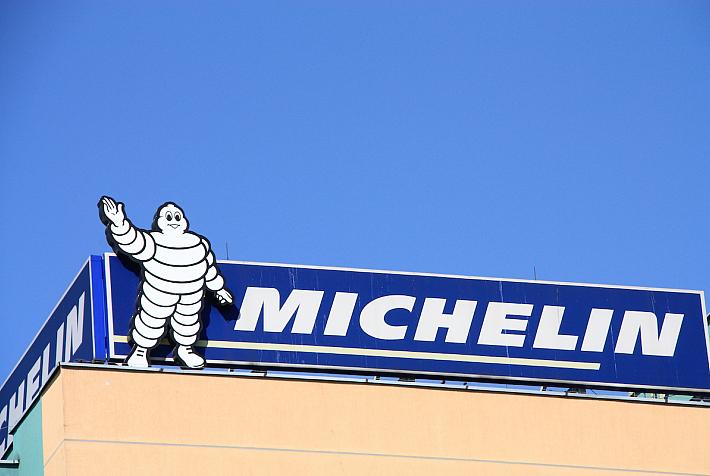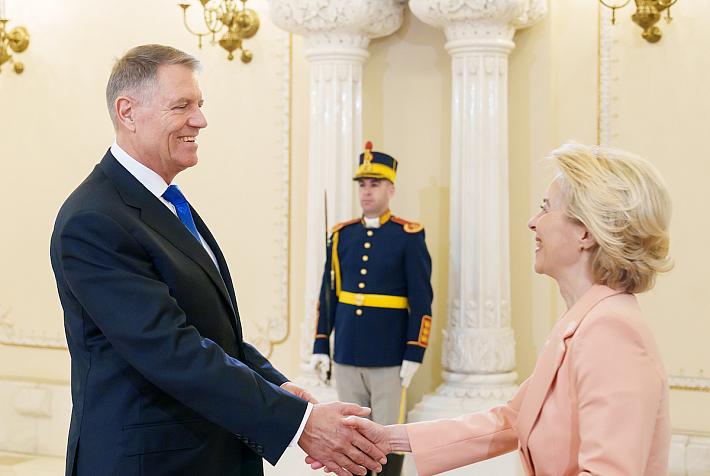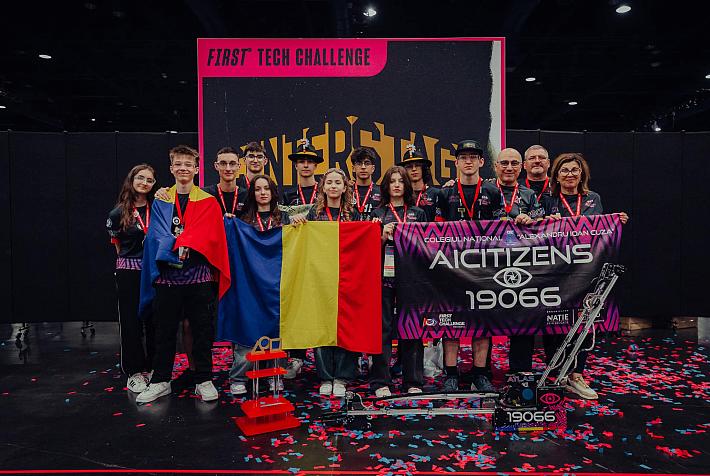An American in Little Paris

US-born Randy Tharp moves to Bucharest and goes through a few changes
Randy Tharp is a man around my parents’ age. He will be 54 this year, while my mother and my father are in their late 50s. Unlike my parents, who already retired, both of them unwillingly, Randy, who is the CEO of the Romanian office of Epstein, an American architecture and construction company, is probably in the best time of his life, at least professionally. “I feel like this late in my career - to some degree it's late in my career, in some ways it's only middle - I feel more energized than I have in almost any time,” Randy says.
After talking to him I tried to understand why there is such a huge difference between him and people like my parents. Why at about the same age, for some life almost ends, while for others it just rolls on even better than before. At first I thought it's because Randy is born in a different culture. He's American and Americans have a different perspective on work, while my parents, who are Romanian, have lived under different rules . But I slowly understood it's more than that.
The lemonade
I met Randy for dinner at the Radisson hotel, quite a fancy place to meet, but then again, Randy is the CEO of an important company. He's a big guy, both physically and professionally, but I understood right away that we could have met anywhere, even in some ordinary pub. He's a straightforward, honest person, who'll really talk about stuff: lemonade, life in a hotel, driving to work, motivation, kids. He won’t just seize the opportunity of an interview to talk about the latest developments in his company. Not that there is anything wrong with that. But it's way nicer when you get to have a conversation for good and you are be able to understand a tiny bit of the person who's next to you for a few hours.
Randy drinks his lemonade with still water and honey, and the waiter at Radisson already knows it. He got to see him quite a few times sipping from his lemonade in the two years Randy lived there. He was working back then from 7 in the morning until 9 o’clock at night, weekends included and some of his colleagues also lived here. It was easier to live in a hotel. He finally rented an apartment near Cismigiu, “you just needed to have something that feels a little more like home. A little more room, a little more space to stretch out”. Because when one lives in a country for almost four years it becomes in a way home, says Randy. “It's not my permanent place, but I've adapted to life here.”
He slowly began to change his American habits. First thing: walking more. “In the beginning I used to get everywhere by car. If it snowed, or rained, I drove. Even if it was close. But now, when we moved our office to Magheru, I walk everyday. I've always thought I couldn't live in the city, I couldn’t stand traffic noise, things like that, but when I came here I really started to like it.”
The suburbs
Back in the US, Randy was living in a house outside the city, mowing the lane, getting in the car and driving everywhere he went. He used to get up everyday at 4.45 in the morning, by 5.30 he was in his car and by 6.30 he got in his office in Chicago. A new day kicked off. “That's when you can get work done. At my level most people are at work by 7 in the morning.” It was the American way of working and it seemed like the best way to do things.
“In general we are pretty driven. People here ask me when are you going on holiday? Only one week? I'm always taking one week. I've never taken two weeks of holiday. The culture is more focused and driven that way. Somebody used to tell me that the Americans live to work, while the Europeans work to live. And that's true, we probably do. If we go on stereotypes, we Americans are focused on what we are doing. You go and meet somebody, ask that person, tell me about yourself, and they start talking about work, what they do. For a lot of people in the US, that's how they identify themselves.”
Then at 5, 5.30 pm he’ll get back in the car, another hour driving back home, while listening to the radio, getting home at 7pm, eating something, reading the newspaper, watching a bit of TV and that’s it. The day is done and there is few time left, even for your own family.
But living in Bucharest means in a way spending more quality time with the family. When he travels back to the US, every four to eight weeks, he completely disconnects from work. “I have a struggle when I come to Romania, as I have to get my head into the work mode. Because I almost turn it off when I go back.”
That's what an architect is!
Randy has always been very motivated. “I more have a fear of failure then I thrive for success. But more on the one side is the fear of not doing what I'm capable of doing, or believe I should be capable of doing. It's a perfectionist mentality, I guess.”
When he was in his early teens and had been doing some tiny jobs and got a slight hint of what money meant, he told his mom he wanted to be a millionaire. “It wasn't like I wanted to own a car, it was like I wanted to be a millionaire. Looked like a good thing to do,” Randy says laughing.
“I liked painting and drawing and people were saying, you're good with drawing and you're good with math, that's what an architect is! I kind of became driven towards that.” He did choose architecture and soon understood he'd embark on the more technical, business side. He started working during university, in university related projects. “My boss would tell me: Randy, we have a meeting on this 60 million dollar building, come in and sit in the meeting. This gave me confidence and exposure and I also got work assignments.”. “Go meet with the client and learn, that’s the best lesson.”
On a personal level, he bought a house and did all the normal things, like growing a family. “I actually got married at 23 before I got out of university. I had my first child when I was 26. That's also very American”, Randy thinks. “You work hard, try to develop a higher level of standard, raise and save enough money to send your kids to school. I had student loans when I got to University. I pretty much paid it by myself and my goal was for my kids not to do that. So far I put two through university, and the last one is halfway through.”
“When I was in my 20s, I didn't have any clue I'd be living here. But what I did anticipate, in my early thirties was that I wanted to have some exposure doing some work international. And that's because when I was thirty I went to work for a Japanese company in the U.S.”
Turn on the expat mode
Back to Bucharest, Randy starts office at 9. "If I could, I’d like to force myself into the office early in the morning, but I tend to be pretty much in the habit of getting in at 9, but I usually stay until 8."
It’s not only the working schedule that it’s different. Life here is by all means distinct. And there is a sense of freedom attached to it. “I know a lot more people that I'd consider friends here than I do in the United States and I interact outside of business with way more people here. There are only a few places outside my church where I would get together with some people that I know and socialize in the States, whereas here, any time, I would call somebody and say: hey, let's get together and have a beer. We'll talk whatever, football matches, sports, business, it doesn't really matter.”
Randy says that a lot of expats tend to have a hang-out place, some place they can go and socialize. “There were a few places where I went and I felt I could go there any night of the week, even on Sunday, and if I stayed there an hour, somebody I knew would come in. We might share a beer and that's it or we might be there for four hours talking.”
“During the Enescu Festival, every day after work, I used to look at the program, might stop to a concert, stay for the whole concert, or just listen for about 15 minutes and leave. I’ve been to about 7 concerts. In the US I would have never done it. I would have had to drive there. Same about travelling. In the US, you plan a lot before you go on holiday, whereas here, you just realise it’s Sunday and think, “I’d like to go somewhere..hm..I’m going to drive up to the mountains, drive up to Brasov, walk through the city and then drive back, all in one day.”
So why do you think you can actually do more activities here? I ask Randy. “Well, I don’t have to take care of a yard, things like that,” he said laughing. “There are not some of those responsibilities. But you also know there are things here that are unique and you just take the time to do them. Even just walking down the street, looking at doors, the architecture of the houses, little things you take pictures of, things that America doesn’t have.”
After Randy and I finished our lemonades and stories and each went his way, and while I was walking down the street, it started raining. I understood that it’s not only the things that America doesn’t have that makes Randy enjoy more his life here. It’s the things that one doesn’t have when one spends his whole life in the same place.
As cheesy as it might sound, changes keep you alive and kicking. And that’s what makes the big difference between Randy Tharp, who is in his mid 50s and feels like there’s so much to discover and people like my parents, who are in their late 50s and almost feel kicked out of life.
By Diana Mesesan, features writer, diana@romania-insider.com
(photo by Diana Mesesan)















